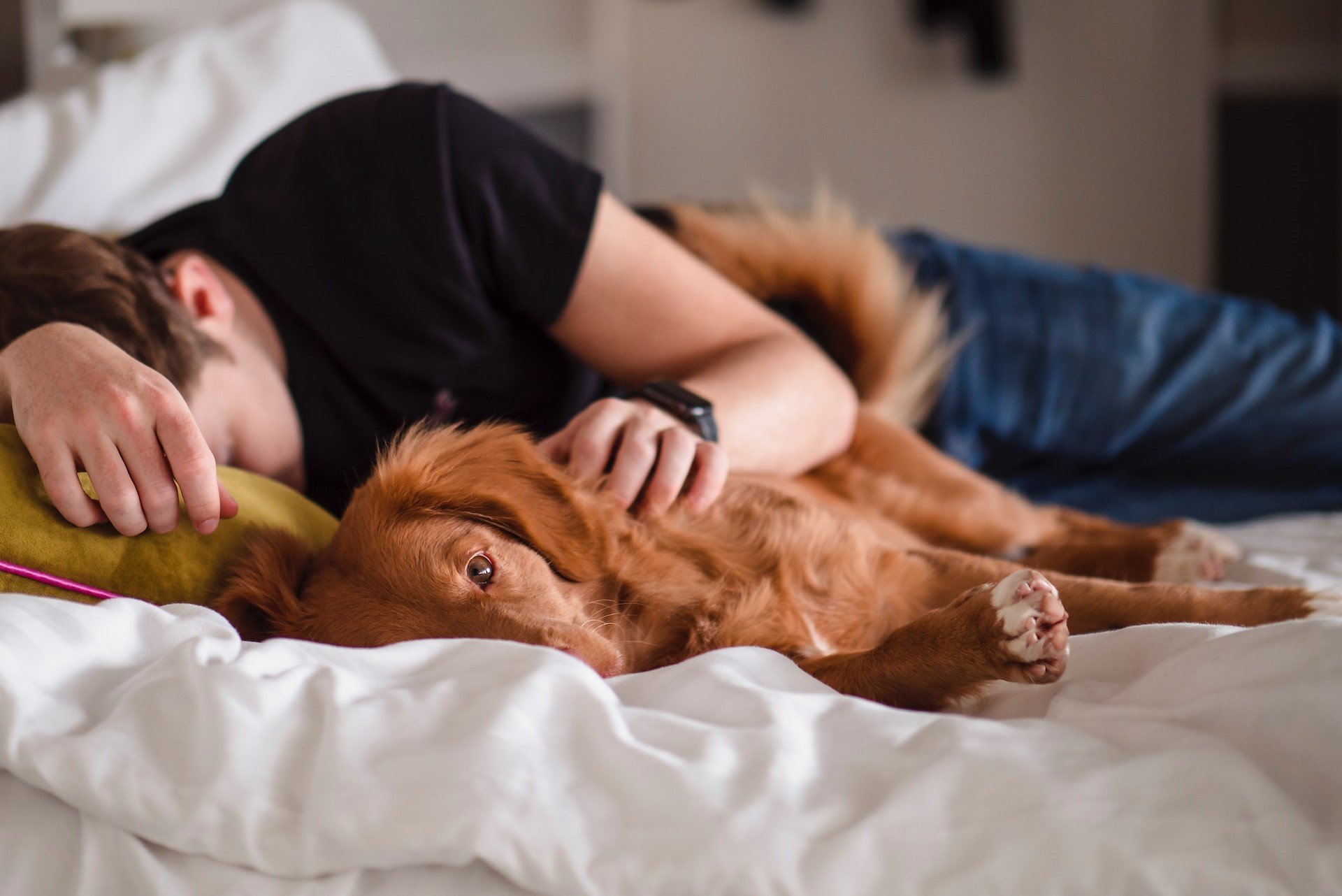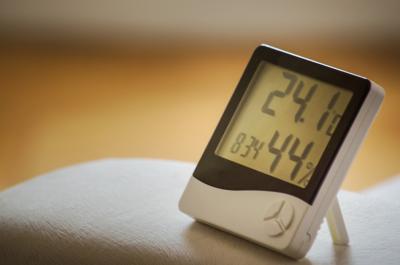Pets are the ultimate best friend. Whether you're a cat person, a dog person, or anything in between, we'd all do anything for our furry pals. We'd even go as far as sharing a bed - or should we say, letting them take up far too much room and then feeling guilty for trying to get comfy again…
And as the seasons shift, the change in temperature affects not only us but also our four-legged friends. As they begin to shed their coats, there are plenty of reasons to avoid sharing a bed with pets whilst shedding.
After collaborating with Dr Deborah Lee of Dr Fox Online Pharmacy, we explain how it can lead to respiratory problems and more. We've also compiled our top cleaning tricks for eliminating pet hair around the home.

Why you shouldn't let your pet sleep on your bed
In a recent study, 68% of pet owners said they allow dogs and cats to enter their bedrooms, and 30% allow them to sleep on the bed. Of these, 86% of dogs and 32% of cats tested positive for Enterobacteriaceae on their fur or foot pads. This group of bacteria includes salmonella, E. coli, and shigella, all common causes of gastroenteritis in humans. Similarly, 23% of cats and 7% of dogs were found to have fleas.
On the other hand, excessive pet hair shedding can make you even more susceptible to allergies. With a change in season, you may notice that dogs and cats begin to shed excessive hair. Around these times of the year, pets who shed seasonally will shed their heavyweight coat for a lightweight one, or vice versa.
Whether it's your dog or cat shedding, either can be an issue in any home - so how exactly can you reduce it? Excessive shedding can last up to 3-4 weeks and poses several health risks if you often share a bed with your pet.
A doctor explains how allowing your pet to sleep on your bed can cause respiratory issues
It's commonly misconstrued that fur is the leading cause of any risks, but it is, in fact, animal dander that can cause serious health problems - you can find this with either dog or cat shedding! Dander refers to tiny flakes of skin shed by humans or warm-blooded animals with fur, hair, or feathers. These small particles can be inhaled through the air, causing potential problems with breathing and the lungs.
Dr Deborah Lee of Dr Fox Online Pharmacy confirms, “Pet dander is a common cause of allergies in children and adults. Encountering pet dander can cause allergic rhinitis, dermatitis, urticaria (hives), and asthma symptoms. Animal dander is a cause of allergic – as opposed to non-allergic – asthma. This is in just the same way as an allergy to pollen causes hay fever and asthma.
“When you breathe the animal dander particles into your lungs, your body's immune cells recognise the dog or cat antigen as a foreign substance posing a threat to your health. As a result, an inflammatory reaction is initiated, and an immunoglobulin (antibody) called Ig E is released. Cells, called mast cells, release histamine, which causes smooth muscle contraction, causing the airways to constrict, meaning you cannot get so much air into the lungs. Histamine also causes an increase in bronchial secretions and airway oedema (swelling). This is why pet-induced asthma gives you all those unpleasant asthma symptoms - coughing, wheezing, feeling chest tightness and shortness of breath.”

Who is most at risk of respiratory symptoms if pets sleep on the bed?
Dr Deborah confirmed, “People who are immunocompromised are more at risk of acquiring an infection from allowing their pet to sleep in the bed. Cancer patients, those on chemotherapy, oral steroids, or with blood disorders, such as leukaemia and lymphoma, newborn babies and the elderly, are all high-risk groups and would be strongly advised against letting their pet sleep on, or in, their bed.”

Our top tips for combatting pet shedding
As hard as it may be to say no to those puppy dog eyes (literally), steering clear of sharing a bed with your pet is probably for the best. However, there are other ways to reduce the number of pet hairs hiding around your home:
- Add an air purifier to your bedroom to remove dander and aid breathing.
- Buy an additional attachment for your vacuum that specifically targets pet hair.
- Alternatively, if you can't afford the above or find one online, you can use a lint roller to remove excess fur from your bedding, sofa, and anywhere else that you share with your pet. Make sure to clean the area at least twice a week, unless it's your bed, which you should do every day, given that you sleep here.
- If you have pet hair that is embedded into your furniture and therefore hard to remove, then all you need is a fabric softener. Simply pour a cap full of fabric softener into a spray bottle, then fill the rest with water. You can spray this homemade solution onto any hairy areas around your home. Let it set for 15 minutes - allowing the solution to loosen the hair - then use a lint roller, vacuum, or brush to remove it.
- If your pet has fallen asleep on your bedding, grab a dryer sheet and keep rubbing it back and forth on the pillow or bedding. The static electricity will quickly remove the pet hair from your bed whilst also leaving a lovely odour.
- Brush your pet daily to remove excess fur and reduce shedding.
- Take your pet to a professional groomer to help with the shedding as soon as possible. Alternatively, if your pet doesn't have enough hair for the groomers, you can use a de-shedding shampoo to reduce the volume of shedding from your pet.
We're just taking a break…
Remember - taking a break from sleeping alongside your four-legged friend is only for a short period! You can enjoy endless cuddles and plenty of uncomfortable sleeping positions again soon. Just think of it as the one where you and your furry friend take a break…












